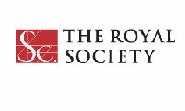Two scientists at Bristol University have achieved the rare distinction of being elected as Fellows of the Royal Society. The Society is the world’s oldest scientific academy and has been at the forefront of enquiry and discovery since its foundation in 1660. Past and present members include Charles Darwin, Albert Einstein, Dorothy Hodgkin, Isaac Newton, Christopher Wren and Stephen Hawking.
Professor Malcolm Brown, Professor of Anatomy and Cognitive Neuroscience and Head of the Department of Anatomy, is distinguished for his electrophysiological studies into the neural basis of learning and memory.
Professor Brown’s research looks at what changes in the brain to allow us to know that something is familiar. Judging that something has been encountered previously – is familiar – is the basis of recognition memory. Recognition memory is essential for normal everyday life. When, as for example in Alzheimer’s disease, we lose the ability to judge familiarity we repeatedly ask the same questions or tell the same stories.
His research has revealed that a small region of the temporal lobe of the brain, the perirhinal cortex, plays a central role in judging familiarity. Nerve cells in this region respond strongly to new things and weakly to familiar things. Currently, Professor Brown and his team are trying to work out exactly what changes in these cells so that once we have seen something, we will remember that it is familiar when we see it again.Professor Stephen Halford, Professor of Biochemistry in the Department of Biochemistry, has shown how restriction enzymes actually work.
About 30 years ago, some enzymes were discovered that could chop very long chromosomes into bite-sized pieces short enough for further analysis and manipulation. These enzymes, now called restriction enzymes, have revolutionised the life sciences.
The active component of a chromosome is its DNA, which consists of a very long string of letters – A, C, G and T – in a particular order. Restriction enzymes act by finding a special set of letters in the DNA and then cutting the string wherever that set can be found. For example, one restriction enzyme cuts DNA only at the code GATC and another only where GGCC appears along the string.
Professor Halford’s research has focussed on how these enzymes find their targets along the string, how they decipher the code, and how they cut the string.
These latest elections brings to 30 the number of academics currently at Bristol University whose work in the fields of science, engineering, technology and medicine has been honoured in this way.
Professor Dick Denton, Dean of Medical & Veterinary Sciences said: “As well as being a great personal distinction for Professors Brown and Halford, this is a further reflection of the University’s excellence in research and continues the success the University has had in recent years.
“These are particularly pleasing elections as both Malcolm and Stephen have worked in the University for most of their academic careers and have certainly carried out their most significant work that contributed to their FRS here in Bristol. They both have also been active in teaching and in general leadership of their Departments.”
Professors Brown and Halford are two of the 44 new Fellows of the Royal Society from the fields of science, engineering and technology whose election was announced last month. There are currently around 1,240 Fellows.
